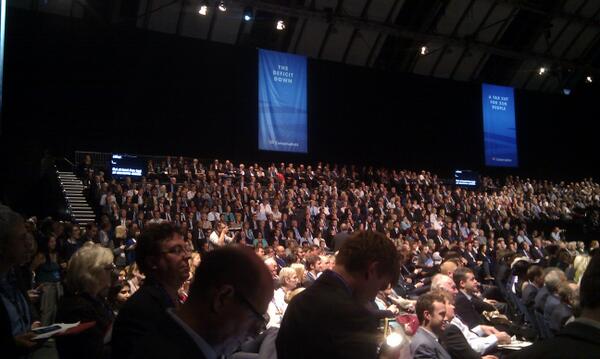For a while, you'll be able to enjoy, if 'enjoy' is the right word for a series of PowerPoint style presentations, last night's BBC News at 10 on iPlayer HERE.
It starts with a seated Huw Edwards reading out the headlines for about 1:30 minutes. Then, he reappears standing in front of a screen, where distracting dollar bills float into heaps in front of the Capitol in Washington DC behind him.
As he clutches a sheet of paper that doesn't seem to serve any useful purpose, numbers about what he's telling us start appearing behind him. Occasionally he makes as if to look at them before handing us over to their Washington correspondent.
Plenty more graphics follow until a flip chart suddenly appears at 14:41 minutes in, with people sitting behind it. But don't worry, our economics correspondent isn't going to write on it, as the numbers and words plop on to the chart, giving the game away just before she's had time to tell us the news about them.
Scroll on to 21:01 minutes, and Huw's back on his feet again with paper in his hands again and more pictures behind him again - soon to be followed by a series of bullet points zooming threateningly in behind his back.
But the barmiest sequence of all comes in at 22:25 minutes into the news, when our medical correspondent suddenly reappears in the middle of a series of concentric circles next to what could be some towers. And towers they turn out to be - tall enough to hold a list of 10 bullet points. As if that weren't enough, the next two towers are tall enough to accommodate 11 bullet points.
23:09 minutes in, we learn why the concentric circles are there. Our medical correspondent is actually standing in the middle of a pie chart, that starts whizzing around him as he tries to point out the numbers that have appears
Regular readers know that I've complained about the BBC's assumption that PowerPoint style presentations are just what viewers who've spent the day suffering from PowerPoint want to see in the evenings.
I've wondered about how much such expensive-looking graphics cost and whether the BBC ever does any research into how audiences respond to news that's presented in this way.
If so, it's surely time they published the results. If not, I'd be glad to offer my services...
Other posts on TV news via PowerPoint:
- 0% of viewers remember all the points made in a BBC PowerPoint-style news presentation
- BigBoard: Are BBC PowerPoint news reports going from bad to worse?
- PowerPoint style presentation continues to dominate BBC News
- BBC Television News slideshow quiz
- Slidomania contaminates another BBC channel
- More PowerPoint election news from the BBC
- News on BBC radio is sometimes very good indeed
- Euro-election coverage: was the BBC's graphical overkill a violation of its charter
- PowerPoint presentation continues to dominate BBC News – courtesy Robert Peston (again)
- BBC Television News: produced for or by morons?

